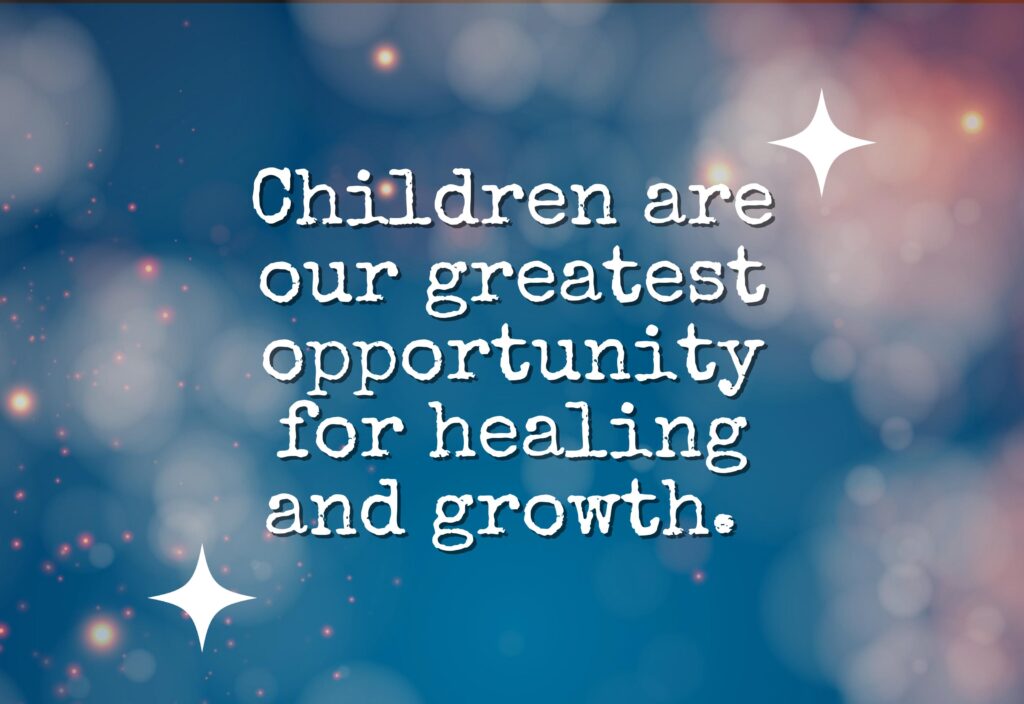The Transformative Power of Caregivers

In the delicate art of guiding young minds and hearts, every interaction holds the power to sculpt the world our children inhabit. Our responses, whether laden with patience or frustration, kindness or indifference, intricately shape the foundation upon which their futures are built. This exploration delves into the profound influence that our actions, choices, and emotional expressions exert on the growth and well-being of the next generation. As caregivers, we wield the transformative ability to nurture resilience, inspire confidence, and cultivate compassion through the nuanced tapestry of daily engagements with our little ones. This introspective journey prompts us to ponder the lasting impact of our behaviors and the profound responsibility we bear in sculpting the evolving landscape of childhood. Join us in unraveling the intricate threads that bind us to the legacy of parenthood, as we navigate the complexities of shaping a world rich in love, understanding, and possibility.
Implementing Positive Parenting Strategies
Positive parenting is a crucial aspect of raising happy and well-adjusted children. By implementing positive parenting strategies, parents can foster a strong and healthy relationship with their children while promoting their emotional and social development. In this blog section, we will discuss key strategies that parents can use to promote positive behavior and create a nurturing environment for their children.
Encouraging Empathy and Understanding
- Encouraging Empathy: Building Emotional Intelligence
- Understanding the Impact of Empathy in Child Development
- Empathy in Action: Teaching Children to Recognize and Respond to Emotions
Setting Healthy Boundaries and Consequences
- Establishing Clear Boundaries: A Foundation for Positive Behavior
- Consequences as Learning Opportunities: Shaping Behavior Responsibly
- Consistency in Discipline: The Key to Effective Boundary Setting
Teaching Problem-Solving Skills
- The Importance of Problem-Solving in Child Development
- Encouraging Critical Thinking: Fostering Creative Solutions
- Real-World Application: Problem-Solving Scenarios for Children
Additional Strategies for Positive Parenting
- Building Self-Esteem: Empowering Children to Believe in Themselves
- Effective Communication: Strengthening Parent-Child Bonds
- Cultivating Positivity: Creating a Home Environment of Encouragement
Incorporating Positive Parenting Into Daily Life
- Practical Tips for Implementing Positive Parenting Strategies
- Celebrating Successes: Recognizing and Reinforcing Positive Behavior
- Seeking Support: Resources for Parents on the Positive Parenting Journey
The Impact of Positive Parenting on Children’s Well-Being and Future Success
Positive parenting is not just about disciplining children; it’s about nurturing their emotional intelligence and teaching them valuable life skills. Encouraging empathy helps children understand and connect with others on a deeper level, fostering strong relationships and emotional well-being. Setting boundaries provides children with a sense of security and helps them understand the consequences of their actions, shaping their behavior positively.
Teaching problem-solving skills equips children with the ability to navigate challenges and think critically, preparing them for future success. By building self-esteem, parents empower their children to face obstacles with confidence and resilience. Effective communication strengthens the parent-child bond, creating a supportive and trusting relationship.
Cultivating positivity in the home environment fosters a sense of encouragement and optimism, laying the foundation for a child’s overall well-being. Incorporating positive parenting strategies into daily life requires dedication and consistency but yields long-term benefits for both children and parents.
Positive parenting is a journey of growth and learning for both parents and children. By embracing these strategies and committing to a positive approach, parents can create a nurturing and supportive environment that sets the stage for their children’s emotional health and future success.
Conclusion
As parents, our reactions play a crucial role in shaping our children’s world. By being mindful of how we respond to various situations, we can create a positive and nurturing environment for our children to thrive in. It is important to remember that our actions and words have a significant impact on our children’s development and well-being. Through self-reflection and conscious effort, we can strive to be the best possible role models for our children, guiding them towards a future filled with love, confidence, and resilience.

